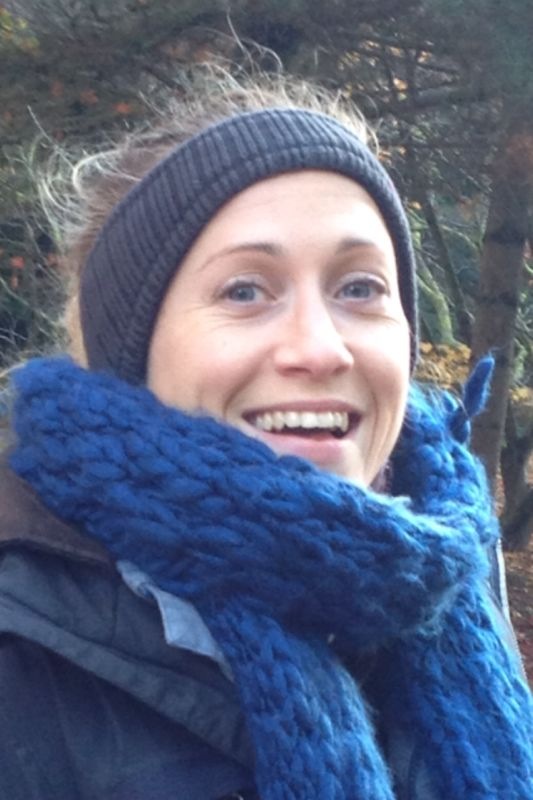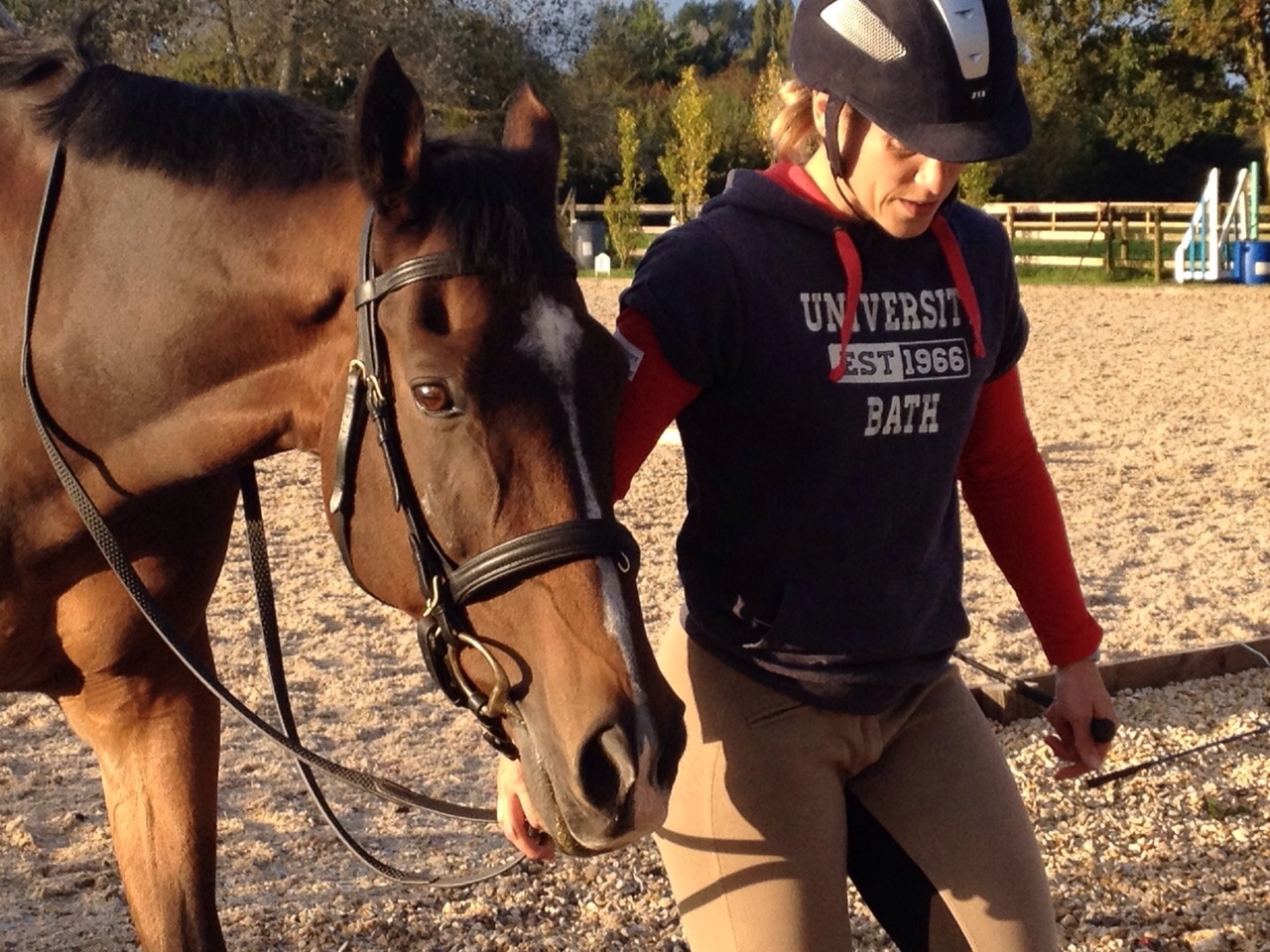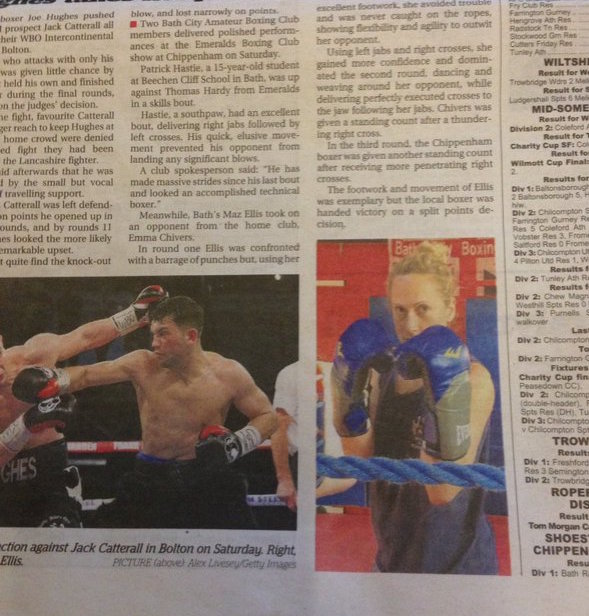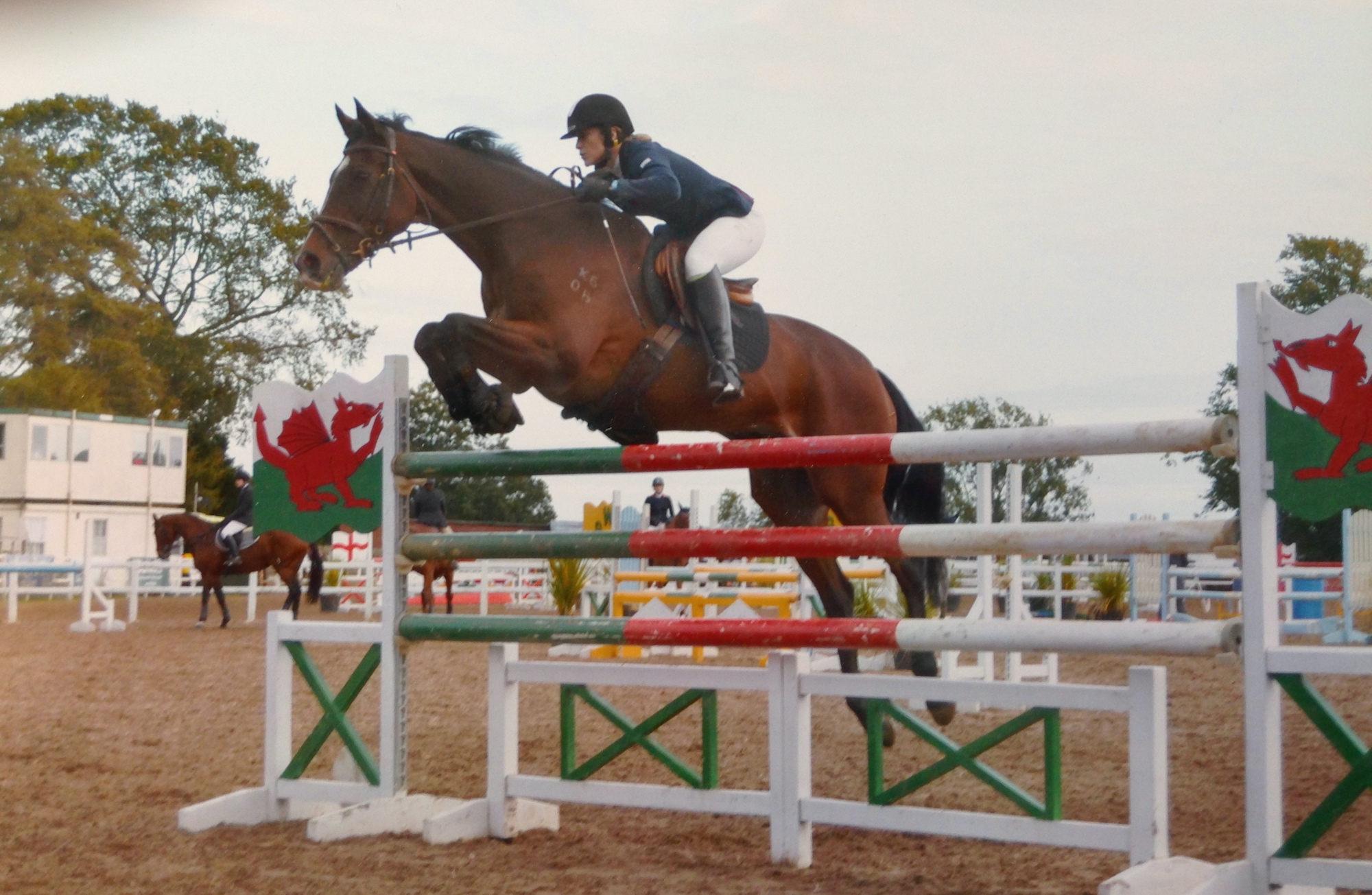“I definitely see the main proportion of my work moving into cultured meat. The potential benefits are so big, that I’ve kind of gotten hooked on it really.”
Marianne’s research interests are in addressing the challenges of scale-up that apply to regenerative medicine (for example, in bone, heart, skin, liver and the immune system) as well as in cellular agriculture. Marianne has been a friend of New Harvest since 2012, and helped to engage the British public with engineering through the topic of cultured meat by leading the Royal Academy of Engineering-funded Futures of Cultured Meat Program with us in 2014. Marianne will also be supervising a PhD in Cellular Agriculture Bioprocessing at the University of Bath (for which applications are still being accepted!) and presenting at New Harvest 2016: Experience Cellular Agriculture.

Hi Marianne! Can you tell us about how you ended up working in cultured meat?
I was working on regenerative medicine, and met Hanna Tuomisto (a PhD student at Oxford who conducted research on the environmental impacts of cultured meat) in 2012 in Vienna at the TERMIS (Tissue Engineering and Regenerative Medicine International Society) World Congress conference. I was there presenting, and I met Hanna during one of the coffee breaks. This conference was like 2000 people – it was massive – and we started talking, and she mentioned that she was presenting on cultured meat. At the time I wasn’t particularly interested in going to that, [I thought] it was a bit gross. But then as I was talking to Hanna, and she explained her job at the European Commission, and what she was doing, and how they needed more detailed information on cell culture bioreactors – and that’s basically what I do. I’m a biochemical engineer and I design reactors – at that point I was like “Ok, This sounds quite interesting, I can help do some energy balance work with you.”
So then she put Isha in contact with me and we spoke about being involved in New Harvest. I said yes, and that must’ve been the start of 2012. It’s kind of been bubbling along since then really with some undergraduate research projects and design projects! We got the Ingenious award (for public engagement with engineers) – it was more to train engineers in public engagement than cultured meat specifically – and then [the conference in] Maastricht, and now we’re actively trying to get some funding to do some work and moving quite seriously from regenerative medicine to cellular agriculture, and specifically cultured meat.
Wow! What role do engineers play in cellular agriculture?
Engineers need to work with scientists to help take these amazing ideas from the lab to the consumer’s plate. You can’t make lots and lots of burgers or steaks using standard culture methods. You need bigger and more efficient reactors and fully integrated processes. If you look at Quorn, they’ve got thousands of liters of reactors going all the time. So we’re looking to be at the same scale. You need chemical engineers to do this process design: How do you get the raw material in; how do you grow the cells for however long; what flow rate; how do you get the cells out and in what state and how to process them ready for consumption.
You need mechanical engineers to give detailed designs for making the vessels and pumps; electrical engineers for the process control and sensing, making sure the conditions are maintained and monitored properly; and you need civil engineers to build the factories and the sites and ensure they are sympathetic to the environment they are in! So every type of engineer will be involved [in cellular agriculture]. A really exciting thing about cellular agriculture is that it’s a new industry that will generate jobs in every field you can think of!

Will cellular agriculture be a focus of your work in the years to come?
I think so. As a typical academic, I’m not going to close any doors to other things, and I’ve got other interest with a burns charity called Restore, and I’ve got some work with industry developing toxicology testing and drug screening models using ‘non-animal technologies’. In Europe there is no animal testing for cosmetics and toiletries so they use essentially bits of human skin where people have had tummy tucks and things, and they look at how a compound penetrates the skin and enters the blood stream (actually just a recipient fluid). We’ve developed a tissue engineered blood capillary model for that. And along the same lines and the same funding body, we’ve also been developing a liver model, for toxicology. There’s still some work to do on those, and I suspect I’ll stay involved in them until they are in the market. But I definitely see a large amount of my work, probably the main proportion of my work, moving into cultured meat. The potential benefits are so big, that I’ve kind of gotten hooked on it really.
On a personal level, what about cultured meat appeals to you?
It’s taken me a while to articulate this, but the thing I see about cultured meat, is how it has the potential to provide a meat product that is animal muscle-based, that can provide a genuine alternative to current products. But then also I think it’s the whole idea of being able to feed people without increasing the burden on the environment. And something else more recently is how in the UK at least, cultured meat could help rejuvenate agriculture. I’m actually not coming at this from the point of view to be completely animal free. We’re very lucky in this country in that the farming environment of agriculture really looks after our countryside. It’s an integral part of the UK. But there’s still pressure on farmers to produce a lot of food, and I see cultured meat and other cellular agriculture products as being another income stream for them, and also a way that they can provide the amount of product that they need to, without more intensification. So that’s kind of the general reason.
Do you think that’s a UK specific context?
I don’t know if other countries are looking at it in the same way. I think we’re particularly well set up because we’re a small island with a great climate and variety of land to grow things, and the way that a lot of our farms are already set up and actively contribute to looking after the countryside and the environment, I think we’re very well positioned to do this. Whether it’s specific or not, I’m not sure, but we do have an active community amongst farmers who really care about the environment as well as the animals, as well as the products.
This is always something I’ve kind of felt, because I’m from the countryside. And now, speaking to Illtud [of Charcutier Ltd, who is providing pig cells for the Cellular Agriculture Bioprocessing PhD] as a farmer, I feel very strongly about this. I think I did before, but I didn’t really know how to match traditional farming with cellular agriculture. And now I completely see how we can match it.
Was Maastricht the first time you met Illtud?
Yeah!
It’s amazing how much has come out of of being able to connect people. And now the two of you are collaborating for the PhD!
Yeah, completely. That meeting – oh my god – I came away from it absolutely wired for about three days. I couldn’t sleep! And I was like, “OK, I can see now what I have to do. This is the path.”
So cool. Can you tell us a bit more about the PhD opportunity and what you expect to arise from that?
We’ve done a couple of exercises here at Bath – quite significant pieces of work actually – with the final year Biochemical Engineering students, looking at process design to grow muscle cells to make cultured meat. As an engineer we would term it as a bioprocess. Not so much the downstream processing which is formulating the product, but growing the cells. Again, linked to Hanna’s work, is understanding the energy inputs and outputs, and how much material, how long it’ll take, and costs and other things like safety and ethics. What we’ve realized is that there’s just not enough data out there to do these calculations. So the idea behind the PhD is to do fill in some of the fundamental information that is currently not available: the stoichiometry of the cell metabolism.
So the information that this PhD will look to find, is to understand the actual requirements of the atomic components of particular sugars and proteins, or whatever else you want to look at, and the related outputs. Because if you don’t know that accurately, you don’t know how much feed you’ve got going in and going out, how big the reactor’s going to be – and therefore you don’t know the energy requirements either. And that hinges on the fundamental biological data. It sounds really simple, but the information that could be found from this, regardless of what approach researchers are taking to produce cultured meat products, is kind of fundamental data that they’ll need to design the process to make affordable products. There will be more conceptual and creative aspects to the project as well in terms of bioreactor design, but the idea is that New Harvest wants to serve the whole community, and this is information that the whole community needs. So that’s the plan!

Cool! I understand you have some really interesting hobbies, could you tell us a little about those?
I’ve always done a lot of sport, actually. Horse riding is my main sport, and I’ve ridden and owned ponies and horses forever – since I was 3. Aside from that I’ve always done other sports for social and fitness reasons. I played and coached rugby at a decent level for quite a number of years (at the time I was one of only a handful of qualified female ‘RFU Level 3 coaches’) all through Uni and towards my early 30s. I’ve given that up, but I thought “What can I do that is skills based, and will make me keep fit?” and boxing was a pretty obvious choice. I took that up about 18 months ago and my god – it is so skillful! It’s been really hard to learn. It’s one thing taking a boxercise class, but actually learning how to box competitively – it’s been a big challenge, but great, because with anything you work hard at and the rewards are massive.
That’s fascinating! I can see how that would be such a different kind of challenge for your brain, because all of a sudden there’s an opponent, and you literally have to think on your feet.
On one hands its very similar because it takes a long time and many hours to learn the skills and of course you never stop learning. But on the other, it’s kind of the extreme opposite of doing the long-haul of research, because if you make a mistake it’s immediate feedback – you get hit! And you know, it’s so intense in the ring. It’s very confrontational and it’s not been easy to get in the ring to fight, but getting through that, and the camaraderie amongst boxers, has been extremely rewarding. It gives your mind a rest from all the work stuff. You’re not going to be looking at e-mail or your phone – you’re just completely focused! It’s really important for people to have interests, to do something alongside work that is fulfilling and healthy – taking a rest from work is actually good for your brain!

What are you most looking forward to about New Harvest 2016?
Meeting lots of interesting people again is the big thing. I’m quite interested to see what people are up to now. The field is moving so quickly, and there’s been massive developments across cellular agriculture and it’ll be cool to get a feel for that. Meet old friends, probably meet new friends – people who’ve just recently come into the field. Just kind of community building, I think! The paper I’m going to present is based on the bioprocess design work, and hopefully will give people working in cellular agriculture something useful that they can take into their work, for some guidance on their bioprocess design. So hopefully my talk will be useful, as well as getting to meet everybody!


